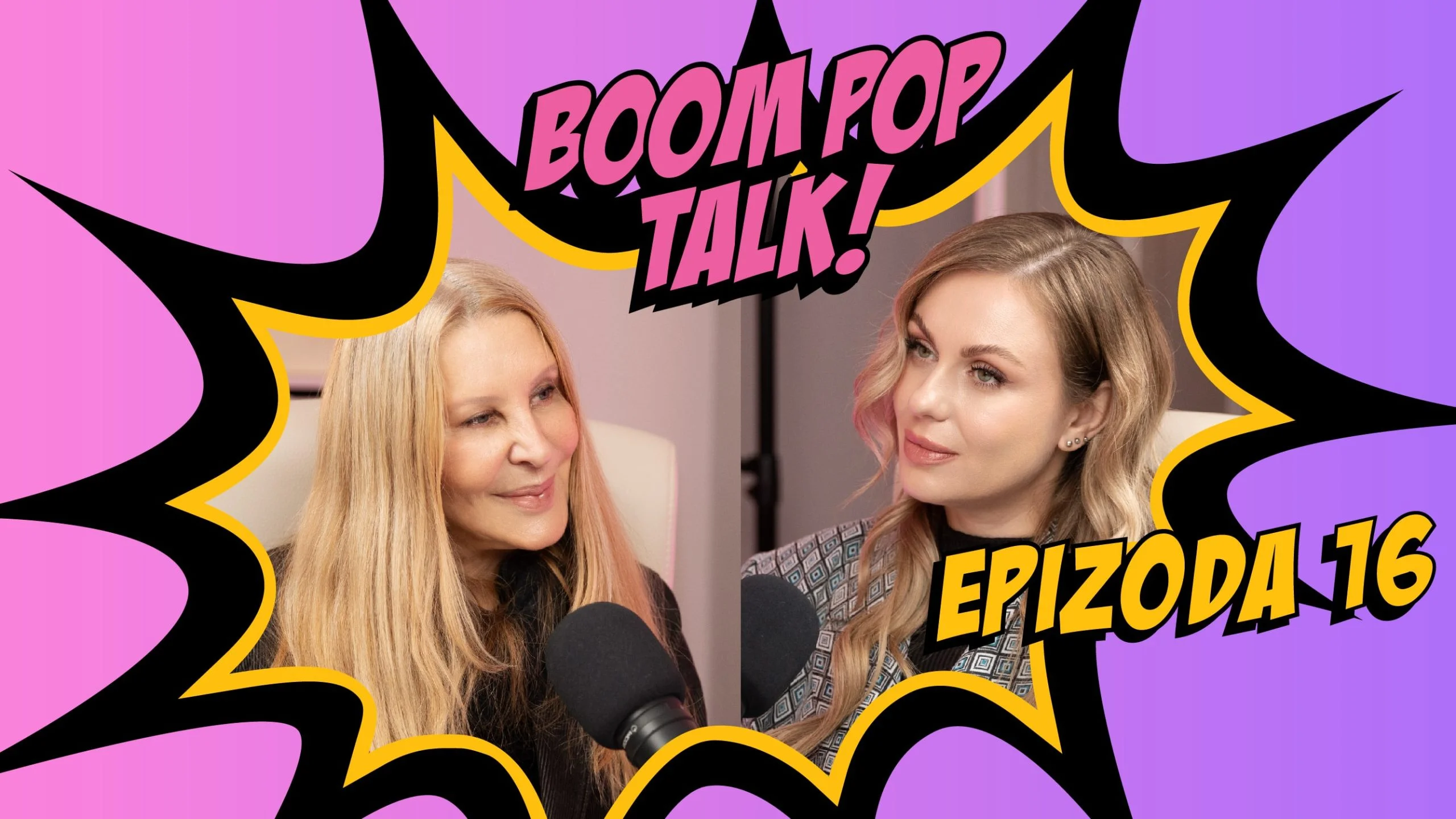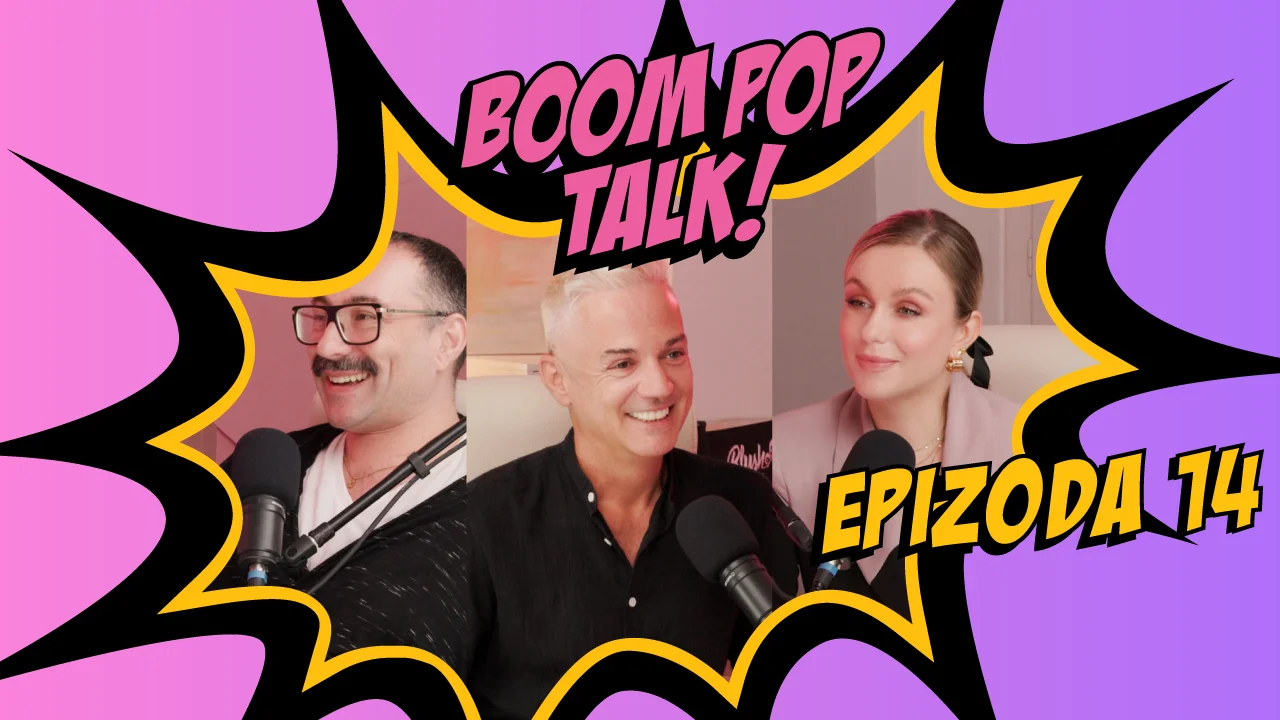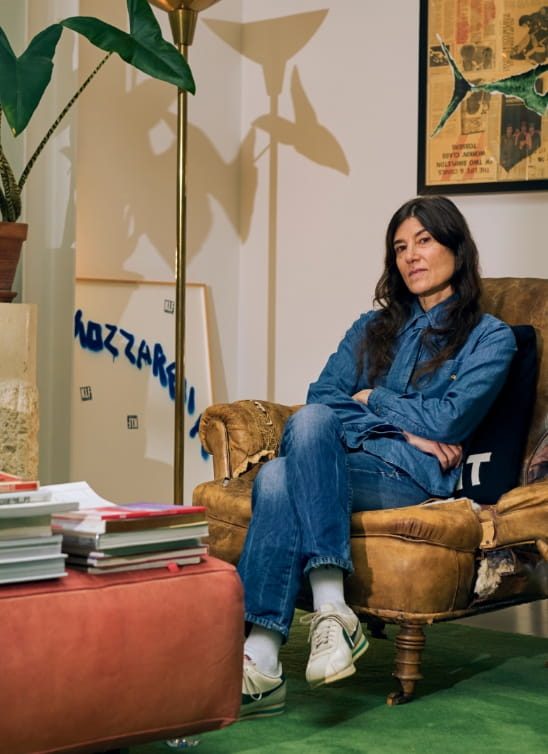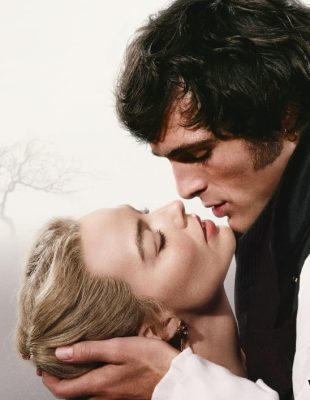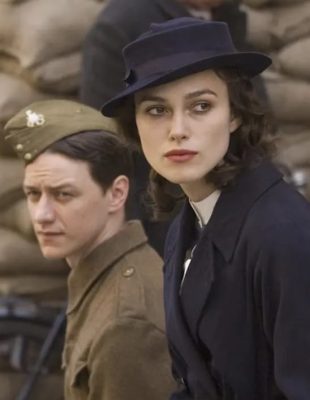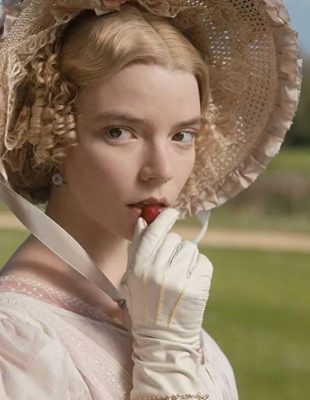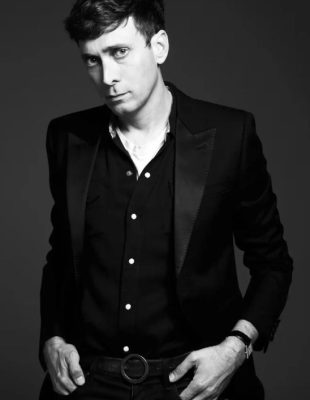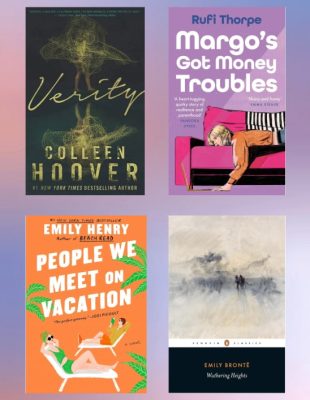Sherry Jones does not need much of an introduction. She is a woman who breaks barriers and takes us through the Muslim history, culture and their world in a different way. For years she has studied the Arabian language and culture, so she decided to build a bridge between religions. As a professional journalist, she has intrigued many with her accomplishments. Her novel “The Jewel of Medina” was published in forty countries and was sold in over 120.000 copies in Serbia. Soon she will revisit Belgrade and, to the joy of her fans, present her newest novel “Four Sisters, All Queens”. Sherry Jones talked to Wannabe Magazine about the contents of the book, her private life as well as her previous novels.
WANNABE MAGAZINE: First of all, I would like to thank you for the wonderful books that you wrote as well as the courage you expressed whilst writing them. Have you had any problems with potential publishers?
SHERRY JONES: My problems with publishers seem to be finished, at least for now, thank goodness! I am sorry, however, that I have not been able to publish “The Jewel of Medina” or “The Sword of Medina” in the Arabic language or in any Muslim countries. I appeared at a bookstore in Egypt to talk about them but the Egyptian government would not allow my books to be sold. My literary agent is negotiating with a publisher in a Muslim country now, however, so we may at last break that barrier. My fingers are crossed!
Do you consider a book to be a bridge between the Muslim and the non-Muslim world?
Yes, both “The Jewel of Medina” and “The Sword of Medina,” by bringing Muslim history and traditions to the non-Muslim world, can help readers understand Islam and its founders. In this way they might bridge the gap between these two worlds – bringing us all together by showing us our similarities, our common humanity.
That, for me, is the power of fiction. By taking us into the hearts and minds of characters – people who might be very different from you and me – fiction gives us empathy for others. It helps us to understand one another, and to love one another.
Since you are a journalist and a writer, can you tell me what the main difference between these two occupations is?
A journalist is concerned with facts, with reporting a factual account of an event or of circumstances, while fiction is concerned with truth – the essential truth of what it means to be human. On the other hand, journalism and fiction writing are similar in that both professions strive to portray life accurately, with attention to nuance and detail, and to show humanity in all its flawed complexity.
How did the Muslim world react to your books?
For the most part, Muslims who have responded to my first two books have written to tell me how much they love them. They’ve enjoyed seeing A’isha, Muhammad, and Muhammad’s wives portrayed as real people, and in reading about the battles, pilgrimages, and other events around the founding of Islam.
Why A’isha?
She was a young girl who married a man six times her age and yet grew up to become a strong, powerful, highly respected woman – the most influential woman in the history of Islam. She had a great heart, and a sharp tongue which she didn’t hesitate to use to express her keen insights to her husband. I would have loved to know her when she was alive! Writing my first two books gave me a way to not only get to know her, but also to share her story with others.
Critics have announced your book as a kind of a “Muslim” response to the “Christian” “The Da Vinci Code”. Do you share their opinion?
Imagining Jesus as a sexual being – as the lover of Mary Magdalene – is shocking only if you think sex is sinful. The Church – both Catholic and Eastern Orthodox – robbed Jesus of his manhood and his mother, Mary, of her womanhood by stripping them of their sexuality. Controlling people’s sexuality is the best way to control people and their assets, which has been the Church’s aim since the early Middle Ages. If we feel ashamed and guilty because, as naturally sexual beings, we have been told by the Church that we are sinful, we will be more likely to try to redeem ourselves by going to Church, giving money to the Church, and serving the Church.
My books reject the idealization of the Prophet Muhammad, and also of A’isha, who has become an object of veneration and in the Sunni Muslim world. But Muhammad was a mortal man, as he reminded his followers, and A’isha was far from perfect. A young woman who I met from Saudi Arabia said that she had a difficult time reading “The Jewel of Medina” at first. When she saw these sacred figures spring to life on my pages, she had to close the book for a while because her heart was pounding too hard. “I was afraid it would change my life,” she said. Then she finished it and, yes, her life was changed. So, yes, in terms of portraying revered figures from religious history and giving them their humanity back, I see parallels between my books and “The Da Vinci Code.”
What do you think is the reason that the position of women in this society to this day has not changed much?
Patriarchy and its partner, religion, have succeeded in keeping women down by portraying God as male. When God is male, only men are like God and women are second-rate. This system has long worked to ensure that women support, and perpetuate our own oppression. The only way to break it is to educate our sons and daughters that, as humans, we are equals and should share equal rights, status, opportunities, and pay.
Did you instantly plan on writing the sequel or did it come to you spontaneously?
I always planned to write “The Sword of Medina.” A’isha’s life got so much more fascinating after Muhammad died. How could I leave her story before she came into her own as an empowered woman, fighting for the future of Islam, leading troops into war on the back of a camel?
You are not Muslim, but you are a woman. Have you ever been less appreciated just because of it?
Being a woman means that, in this world, one is less appreciated – or appreciated for things that don’t matter, such as beauty. Women’s fiction, too, is looked down upon, relegated to “genre” status while the books men like, such as crime fiction, are accepted as “literature.” But I love being a woman. I love the intelligence, strength, emotion – the inner beauty – of women. In my books, that inner beauty shines through on every page. I celebrate women, and rejoice that things are changing for us! My daughter’s generation of girls and boys assumes that women should have all the rights that men have, including the right to our bodies and our sexuality. They are rejecting the old ways of thinking. The idea of male superiority and male dominance is foreign to them. At the same time, however, I feel sorry to see girls and young women objectifying themselves by wearing sexually suggestive and revealing clothing – styles pushed upon them by the fashion world, which is very patriarchal and misogynist.
You are promoting your new book “Four Sisters, All Queens”. Are you firstly publishing it in Serbia because it became a sort of a tradition or is it a little superstitious of you?
My book is coming out so quickly in Serbia because I have many wonderful fans who are eager to read something new of mine. I am proud to publish my books first here, and very happy to return to such a beautiful country with its warm and friendly people.
Can you talk about the book a little bit, what is it about?
“Four Sisters, All Queens” is about four famous and amazing sisters in 13th century Provence who all became queens – of France, England, Germany, and Sicily (Italy) – and shaped the course of world events. These most powerful women, however, found themselves thwarted in exercising their power by the patriarchal society in which they lived. Had they pulled together, they might have accomplished so much more, but instead they fought bitterly over their father’s will – because, being women in a man’s world, they really had so little. “Four Sisters, All Queens” is a tale of women’s power in a man’s world, and of love, lust, revenge, and sibling rivalry on a royal scale.
Do you think we brought you luck and what is your general opinion on Serbian publishers?
It is my great fortune that my books are well loved in Serbia, where the people are so genuine and warm and the beautiful Danube River flows like love itself through the heart of Belgrade. As far as Serbian publishers are concerned, I have worked only with Beobook and its owner, Aleksandar Jasic. I cannot imagine a better publisher. He is the hardest working man I know and he produces wonderful versions of my books. Have you seen the Serbian cover of “Four Sisters, All Queens”? It is as lovely as a fairy tale! I am very happy with Beobook and I hope we will enjoy a very long career together.

Serbian cover for a new novel written by Sherry Jones titled "Four Sisters, All Queens"
You tell stories of many life situations and emotions. Do you need to experience them in order to transfer them to paper, or is inspiration solely enough for you?
At age 50, I have probably experienced every emotion, and most life situations. When I write, I draw on my past experiences. I’m a highly sensitive person and remember with poignancy every tear that I have ever shed, and why. I know the joy of true love and the despair of grief and loss. Most of all, I know how to rise again after being stricken down, how to find and employ my inner strength to overcome the obstacles that life places before me. That knowledge allows me to help the heroines in my books to do the same.
It seams to me that you like to write about the social model of family through time, conflicts between material things and personal happiness. Do you think there is a winner between those two, or are they both somehow always the losing ones?
Family is so important. Our family shapes whom we are, and influences everything we become and do in some way. I do wonder how the influence of family has changed over the years, as we’ve become more mobile – we tend to leave home instead of staying near our family – and as the definition of family has changed. No matter what the Church or the law says, our culture now sees “family” as a unit of love, not just of blood, with gender, sexual orientation, and religion becoming less relevant. In my family, “love” was just a word. My parents were abusive to my sister and me, and to each other. “Four Sisters, All Queens,” with its emphasis on family, is in part my way of working through these personal issues. What does “family” mean to me? What does it mean to you?
As for material wealth and happiness, a balance must be struck. Poverty can crush the human spirit, and keep women in marriages, for example, that are damaging to them. My own mother is an example: My father abused her and yet she had very little education, no money, and two children, so she felt forced to stay in the marriage. Financial independence is crucial to health and happiness, especially for women living in what is still a man’s world. And yet, money itself, as the saying goes, cannot buy happiness. Many wealthy people are miserable. As for me, I made the choice many years ago to do what I love – write – in hopes that money would follow. If it didn’t, though, I’d be happy, anyway, because I spend every day in bliss, following my muse. I can live very happily on very little.
What are you currently working on?
I am under contract with my U.S. publisher, Simon & Schuster, to write a novel about Heloise and Abelard, famous 12th century lovers in Paris. He was the most famous philosopher in the world and she was the most renowned scholar of her time – and a woman, which was very unusual. Their love affair was very passionate, and very tragic. Many have written – books, movies – about them, but not since the recent discovery of 113 letters they wrote to each other. I am excited to bring them to life, and to explore how Heloise, a progressive woman who tried to live life on her own terms, rose above tragic circumstances to become one of the most powerful abbesses in Europe.
In an interview you once said you were shocked when you saw the consequences of the bombing of Belgrade. Could perhaps a story about Belgrade and Serbia in general be a topic of your next book?
I need to know Belgrade better, to explore the city and feels its pulse, before I can write about it. I’m spending 10 days there on my visit this month, hoping to develop intimacy with that city which seemed, to me, magical. I would love to find women in the history of Belgrade who inspire me to write about them. I welcome ideas, if your readers would like to write to me with them!
Do you think there is a connection between music and writing?
I am amazed that you have asked me this question! I love music – not just listening, and dancing, to it, but also playing it on the piano. My big regret in life is that, after starting piano lessons at age 11, I had to quit when my parents separated and sold my piano. I was not able to get another piano for myself until I was 36 years old, and it was too late for me to become the great pianist I had wanted to be. Yet I still love to play classical music.
The man I love, Robert Spittal, is a conductor and composer of classical music. From the start, the fact that we are both writers – he, of music, and me, of words – joined us in a special bond. Our processes of writing – of creating – is very similar, we’ve found. Music, like writing, needs certain qualities to be truly good: Beauty, accessibility, tension, structure, flow, point and counterpoint, imagination, surprise. It’s no coincidence that we write words to music, and that we sing one and speak the other.
What is your favorite book and why?
My favorite book currently is “Wolf Hall” by Hilary Mantel, about Thomas Cromwell, the chancellor to Henry VIII. The writing is beautiful and imaginative; the story is riveting; the characters are wonderfully well drawn. Now, however, I have just bought the sequel, “Bring Up the Bodies” (a title I hate, as it reminds me of a scene from a Monty Python film: “Bring out your dead!”), and am very excited to dig in. It may become my new favorite, if I’m fortunate!
What advice would you give to young people who want to become writers and what to those who want to be journalists?
Fiction writing and journalism are similar, in that both entail writing and research, but their end result can be quite different. Journalism concerns itself primarily with facts, while fiction explores truth.
To those aspiring to either profession, however, I say, read good writing. Remember: “Garbage in; garbage out.” Write fearlessly. Revise, revise, revise.
Do you write every day?
Yes. Writing is my addiction. And chocolate.
Marina Marinković ne može da zamisli dan bez smeha, muzike, sarkazma i prijatelja. Voli Španiju, modu, mamu, poeziju i prozu, dobru organizaciju i Vlada Georgieva. Planira da se bavi novinarstvom kad poraste.

